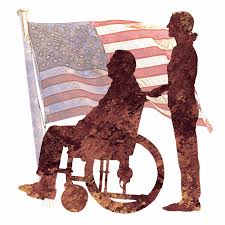Changing Health Systems Using Evidence-based interventions to increase Colorectal Cancer Screening
This announcement funds recipients who will partner with health systems and primary care clinics with low colorectal cancer (CRC) screening prevalence.
Recipients will work with their partners to use evidence-based interventions (EBIs) to increase screening in people aged 45 to 75 years old.
The focus is on populations that have low screening prevalence and experience barriers to screening.
Partner clinics must have screening prevalence below the national, regional, or local average.
Programs should emphasize identifying populations that have lower screening prevalence or clinic sub-populations who may need more support to complete the screening process.
To implement the program recipients will do all the following:
Establish partnerships with health systems and primary care clinics to implement at least three multicomponent EBIs recommended in The Community Guide.
These EBIs must focus on different areas of the clinical system (such as increasing demand, increasing access, and increasing delivery of screening recommendations).
Establish partnerships with organizations that support implementing EBIs, improving data collection, and enhancing use of electronic health records (EHRs) in primary care clinics to increase CRC screening.
Conduct a formal readiness assessment of each partner clinic’s capacity to implement EBIs.
Use this assessment to select EBIs that will support improved CRC screening.
Make sure clinics have a CRC screening champion in the clinic.
Use a limited amount of funding to pay for stool-based testing in partner clinics and to ensure follow-up colonoscopies occur after a positive or abnormal screening test, as a payor of last resort.
Submit high-quality, clinic-level data, including baseline and annual CRC screening prevalence, aggregate data on stool-based tests provided to and returned by patients, and aggregate data on follow-up colonoscopies including those supported by the program.
Make sure health systems and clinics develop the capacity to collect data and track the entire CRC screening process patients undergo.
Submit one success story every six months.
Plan and complete an evaluation of program activities and submit an annual evaluation report.
Recipients will work with their partners to use evidence-based interventions (EBIs) to increase screening in people aged 45 to 75 years old.
The focus is on populations that have low screening prevalence and experience barriers to screening.
Partner clinics must have screening prevalence below the national, regional, or local average.
Programs should emphasize identifying populations that have lower screening prevalence or clinic sub-populations who may need more support to complete the screening process.
To implement the program recipients will do all the following:
Establish partnerships with health systems and primary care clinics to implement at least three multicomponent EBIs recommended in The Community Guide.
These EBIs must focus on different areas of the clinical system (such as increasing demand, increasing access, and increasing delivery of screening recommendations).
Establish partnerships with organizations that support implementing EBIs, improving data collection, and enhancing use of electronic health records (EHRs) in primary care clinics to increase CRC screening.
Conduct a formal readiness assessment of each partner clinic’s capacity to implement EBIs.
Use this assessment to select EBIs that will support improved CRC screening.
Make sure clinics have a CRC screening champion in the clinic.
Use a limited amount of funding to pay for stool-based testing in partner clinics and to ensure follow-up colonoscopies occur after a positive or abnormal screening test, as a payor of last resort.
Submit high-quality, clinic-level data, including baseline and annual CRC screening prevalence, aggregate data on stool-based tests provided to and returned by patients, and aggregate data on follow-up colonoscopies including those supported by the program.
Make sure health systems and clinics develop the capacity to collect data and track the entire CRC screening process patients undergo.
Submit one success story every six months.
Plan and complete an evaluation of program activities and submit an annual evaluation report.
Agency: Department of Health and Human Services
Office: Centers for Disease Control - NCCDPHP
Estimated Funding: $110,000,000
Office: Centers for Disease Control - NCCDPHP
Estimated Funding: $110,000,000
Who's Eligible
Obtain Full Opportunity Text:
https://grants.nih.gov/grants/guide/pa-files/PAR-24-260.html
Additional Information of Eligibility:
Eligible applicants are institutions of higher education, other nonprofits, commercial organizations, international organizations, and state, local and federally recognized tribal governments.
Federal agencies or institutions are not eligible to receive Federal assistance under this notice.
(See “special instructions for federal applicants” on the CPO website.)
Full Opportunity Web Address:
http://grants.nih.gov/grants/guide/pa-files/PAR-24-260.html
Contact:
Agency Email Description:
abv8@cdc.gov
Agency Email:
Date Posted:
2024-12-18
Application Due Date:
Archive Date:
2025-03-22
Sunday April 6, 2025
Social Entrepreneurship
Spotlight
Girls-Aiding Social Business Accelerators To Help Teen Girls Living In Poverty

In partnership with the Unreasonable Group, the Nike Foundation is set to launch the Girl Effect Accelerator this November to help social entrepreneurs whose business startups focus on helping economically disadvantaged adolescent girls.

